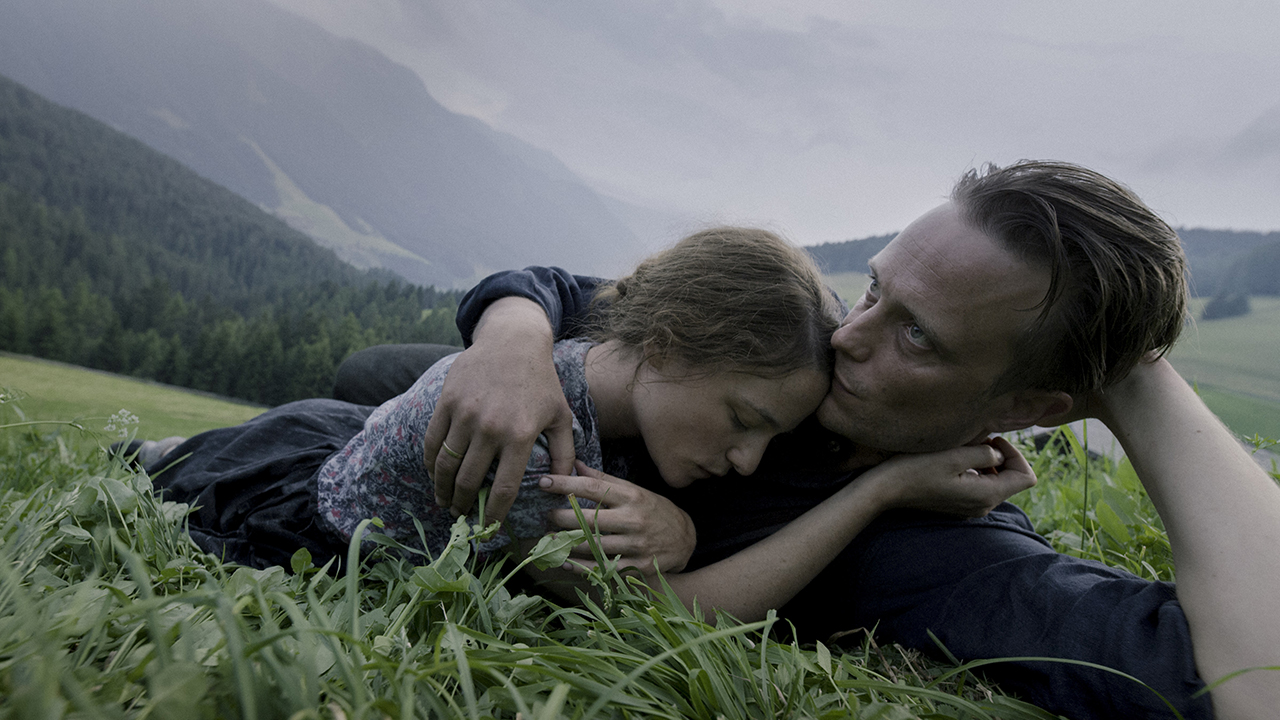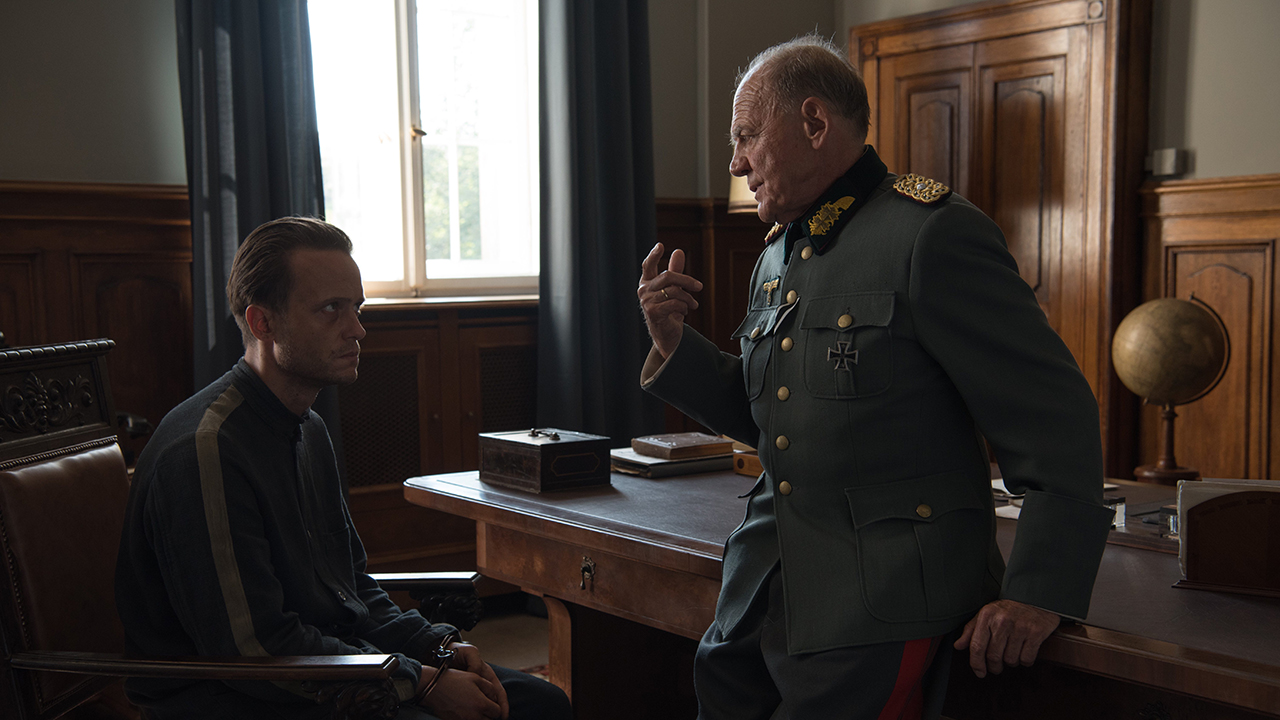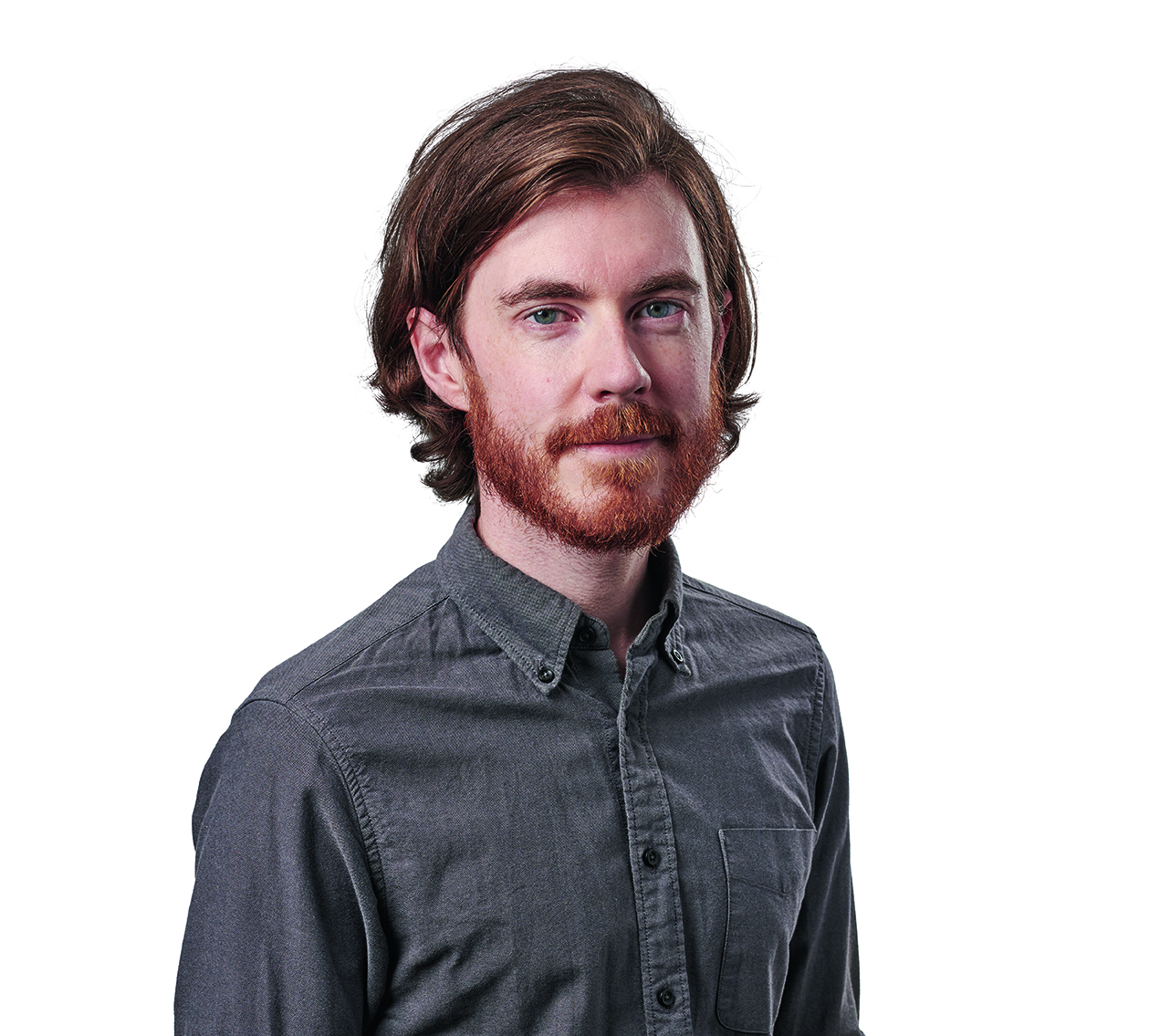Terrence Malick is back with spiritual WW2 movie A Hidden Life: “A film to hold in the same regard as his finest work”
Total Film reviews the latest intimate epic from the enigmatic American auteur out of Cannes 2019

The myth of Terrence Malick is not what it once was. After bagging the Palme d'Or in 2011 with his hype-justifying magnum opus The Tree of Life, a subsequent trilogy of frustrating fractured narrative dramas (To The Wonder, Knight of Cups and Song To Song) left many wondering whether the Malick of the past was no more. Mercifully returning to the relative simplicity of a linear story told with clarity and purpose, A Hidden Life isn't just a return to form for one of American cinema’s most enigmatic auteurs, but a film to hold in the same regard as his finest work. Though if the cult of Malick has bemused you to date, don’t expect A Hidden Life to convert.
Based on a book of epistolary correspondence between Franz and Franziska Jägerstätter, played here by Inglorious Basterds' August Diehl and relative newcomer Valerie Pachner, the setting is remote Austrian village St Radegund, at the outbreak of World War 2. The film opens in relative tranquility as Franz and Franziska go about their peaceful life as farmers, elegiacally narrating their meet-cute over breezy flashbacks, or cutting grass in perfect synchronicity. But as ominous archive footage of Hitler's parades through the streets of Berlin hints, their idealistic lives are about to be tragically upended.
Franz is enlisted into the German army in 1940, and trained at the Enns garrison. Though refusing to take the required oath to Hitler, he’s allowed to return home under an exemption afforded to farmers. "Do you believe in what we’re fighting for? Don’t they know evil when they see it?" Franz asks a friend upon returning. The rest of his village has drunk the Kool-Aid, and when Franz refuses to return a Nazi salute in the street his status as a traitor to the Fatherland soon spreads.
This opening hour is resplendent. As shot by cinematographer Jörg Widmer, an ultra-wide field of view makes it feel like the entire Radegund valley's verdant green fields and cloud-scraping mountain ranges are contained in every frame. The beauty of Franz's home life is in stark contrast to the ugliness of war, which never reaches Radegund's borders in the traditional war movie way – you barely see a gun in the entire film, let alone one fired – but is thoroughly explored through Franz's internal spiritual crisis.
An internal struggle

"Franz engages in an internal struggle both with himself and the Nazi forces who try to break him physically and mentally"
Whether coincidence or a consequence of his now open defiance of Nazi leadership, Franz is re-conscripted into the German Wehrmacht in 1943, and promptly imprisoned after refusing to take the oath. Franziska labels it an "act of madness", effectively guaranteeing his death. But Franz’s defiance is summed up in a single line: "My hands are bound, but it’s better than my will being bound." Over the next two hours (A Hidden Life runs a lengthy 173 minutes) Franz engages in an internal struggle both with himself and the Nazi forces who try to break him physically and mentally.
The film occasionally returns to Franziska and their three young daughters in the village. They are ostracised – mud is flung at the children, Franziska is spat at and beetroots are brazenly pilfered from their farm. But Franziska's experience is also peppered with acts of kindness, just as Franz meets more reasoned voices during his incarceration, including Matthias Schoenaerts and Bruno Ganz as German officers who indulge in (admittedly unlikely) bouts of philosophising with Franz. This is far from a black and white condemnation of sympathisers at the expense of the honourable resistance.
Unlike his most recent trilogy, which chronicled similar emotional turmoil, but could fairly be described as "First World Problems: The Movie(s)”, A Hidden Life’s subject matter is entirely deserving of such a sincere, poetic treatment. It’s shot in that classic Malick-ian fashion: swooping tracking shots along naturally lit locations; lingering inserts of trees, or a playful caterpillar; Thomas Newton Howard’s achingly emotional strings providing a near-constant, pathos-fuelled musical presence; and practically whispered, near omnipresent narration. Malick has always been an unparalleled visualist, but here he also batters you emotionally as the film methodically inches towards its inevitable conclusion.
Sign up for the Total Film Newsletter
Bringing all the latest movie news, features, and reviews to your inbox
There are a few niggles. By design you never get a sense of the bigger picture, even for Radegund. For reasons that aren’t entirely clear, the characters jump between English and German, seemingly at random. While some characters, speaking in heavily accented English, aren’t remotely comprehensible without subtitles. And for anyone with a low tolerance for the Malick-isms that have defined Tezza’s career, A Hidden Life offers no accessible an entry point. But for anyone who’s been waiting eight years for Malick to get his groove back, the myth-maker has returned.
For more coverage from the 2019 Cannes Film Festival read our review of Robert Eggers’ must-see horror The Lighthouse.

I'm the Deputy Editor at Total Film magazine, overseeing the features section of every issue where you can read exclusive, in-depth interviews and see first-look images from the biggest films. I was previously the News Editor at sci-fi, fantasy and horror movie bible SFX. You'll find my name on news, reviews, and features covering every type of movie, from the latest French arthouse release to the biggest Hollywood blockbuster. My work has also featured in Official PlayStation Magazine and Edge.


